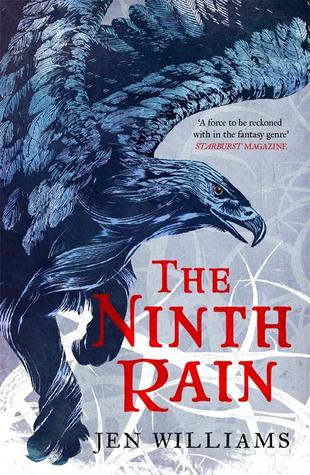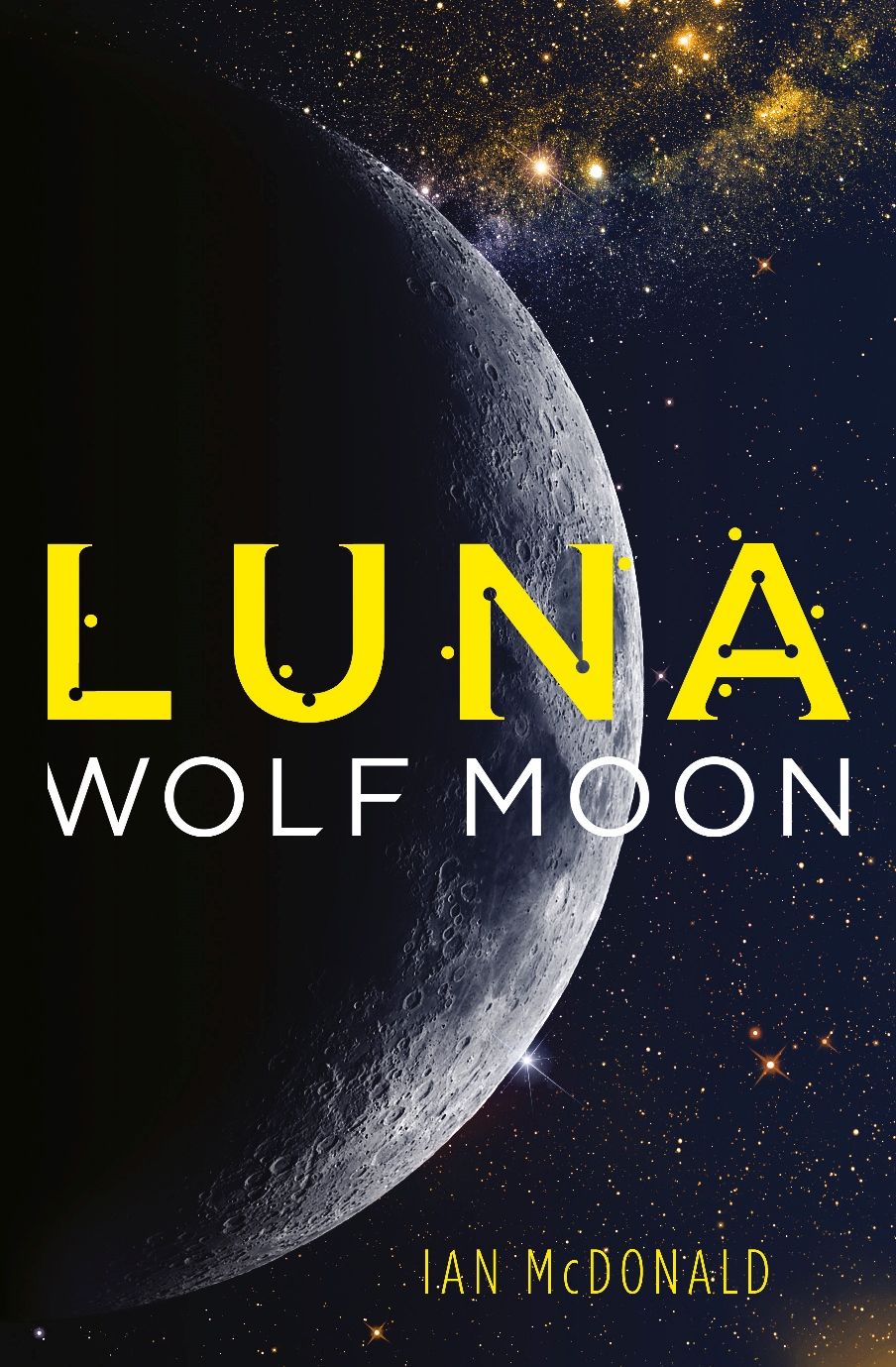I run a book club: the
Cardiff Science Fiction & Fantasy Book Club. So, when I heard of a
Cardiff BookTalk on a genre novel, I was very curious about it - both the book and the BookTalk - and decided to attend. This is a review in two parts: first the book, then the BookTalk.
The Haunting of Hill House is an influential classic of the horror/suspense genre. Ignorant as I was, I thought it must have been written in the 19th century. As a matter of fact, it was written and published in the 1950s - and quickly established itself as
the ultimate haunted mansion story. It was rapidly turned into a movie (itself a classic of the horror genre, remade in 1999 when a movie studio wanted to revive the horror genre & re-established a classic horror brand).
So, if the basic premise sounds a little familiar, that's because it is. Whether you've seen House on Haunted Hill, or Haunted Mansion, or The Shining, or Monster House, or any of the other haunted house movies (or computer games!), chances are, it will owe some of its story-DNA to The Haunting of Hill House.
Doctor Montague is an eccentric academic with an interest in the supernatural. Once he hears about Hill House and its hauntings, he becomes obsessive about investigating it for his book. He makes arrangements with the owners to stay in the house for a summer with a few selected guests. He picks the guests by looking for people who have been involved in supernatural phenomena before. Before Google, this involves searching of newspaper archives and detective work, but eventually he has a list of people to invite, and two of his invitees do take him up on the offer.
Eleanor is a woman in her thirties whose life is undergoing changes: her mother has just died, and until her death, Eleanor had been looking after her controlling mother, secluded and isolated from the world. Theodora is a younger, extroverted independent woman who has had an argument with her flatmate and decides spontaneously to take up Dr Montague's offer primarily to take some time out and give herself and her friend some breathing space. The final guest is Luke, a nephew of the owners of the house (the Sandersons), who is imposed upon Dr Montague because the Sanderson family are worried that Luke is turning into a bit of a lazy layabout and cad, so they want him away from mischief and in a role of supposed responsibility for the summer.
The book follows Eleanor most closely (allowing itself occasional sojourns to very briefly follow another character). Eleanor is a shy, repressed woman, meek and quite needy. She's been living with her sister's family since her mother's death, and she's a bit bullied by her sister (and her husband), just as she'd been bullied by her mother before. Even taking the car - which she has half paid for - to Hill House is an act of rebellion she can only carry out in secret as her sister decides she "cannot allow" Eleanor to use the car.
En route, Eleanor submerges into her imagination a bit - daydreaming about a future, a home, but also having premonitions that this might be her "last chance" to turn around. When she arrives at Hill House, the sense of wrongness is all-pervading, not helped by the sinister groundsman and his equally sinister wife. Before long, Eleanor is frightened almost out of her mind, only brought back to a semblance of equilibrium when Theo shows up. (No other guests or hosts had arrived before them).
From then on, the story takes the form of a series of nights and days in the house, with increasingly creepy incidents each night terrorising the residents, while each morning the elation of having survived turns the night into distant memories that seem far removed from reality. Meanwhile, Eleanor fixates on Theo and Luke, seeing them as instant best friends / family / potential lovers, and flipping to and fro between subservient affection and fierce jealousy. Her social awkwardness isn't helped by the playful pattern of conversations in the group, which is half-imaginary-play, half self-mockery: Eleanor tries to take part, but is out of her depth, fretting over everything.
The house, described as insane in the book (it is very much a character in the story, with agency and a mind), soon zooms in on Eleanor and makes her the focus of its warnings and hauntings. As a meek person, Eleanor resents this. Oddly, the more the house focuses on her, the less the others think of her, as if they barely remember she exists when she doesn't do something to demand their instant attention.
The Haunting of Hill House is a novel of rare effectiveness at unsettling the reader. It's a bit old-fashioned in terms of the supernatural events, but it's psychologically all the more powerful because of the characters, their interactions, their dialogue, and the sense that people minds and memories are being subtly corrupted by the house. The story builds and builds tension, not through the hauntings, but through what happens to Eleanor's thoughts...
As perfect as a haunted house horror novel can be.
Rating: 4/5
Cardiff BookTalk
 Cardiff BookTalk
Cardiff BookTalk, which is run by Cardiff University, describes itself as "The book group with a difference". That difference being its use of expert academics to give talks at the group.
The format is
described as follows:
BookTalkers listen to diverse interdisciplinary research topics which expand on themes in the very best classic and contemporary literature. Each speaker addresses the books from their own specialism, and this can lead to fascinating insights about the literary, social and cultural implications of the novels we read. The talks, given by University academics who are specialists in their field, as well as other expert speakers, will be followed by an open discussion session with the audience, and we want as many people to share their perspectives as possible. If you’re interested in discussing the big ideas behind great books, and want to discover new ways of looking at novels, then join us for our next session!
So, what is it like? Well, there were three academic giving 15-20 minute talks. The first talk was very much about The Haunting of Hill House (and the female gothic). The second talk was about how Haunting of Hill House compares with a novella that no one else had read (and which there is no reason to believe that Shirley Jackson had read). And the third talk was about the psychosocial aspects of the book and Eleanor's character in particular. (The academic didn't like Eleanor, or any of the characters, or the book as a whole, as she made clear at the start of her talk, apparently agreeing to give the talk only to find it an annoying chore to prepare for when the time came)
The talks
did illuminate some things. The names of characters are riffs on other famous gothic stories. The book is not just an influential horror novel, it is also a bit of a parody of haunted house novels. (I was completely oblivious to the book being anything but earnest when I read it). The name Theodora is intentionally chosen to be ambiguous about gender, and she is called Theo throughout the book (which I had not noticed). The extent to which Eleanor is an odd-one-out in her society was another thing I had not really thought about when reading the text. I had not realised how needy Eleanor really was (and how much of a daydreamer) until the talks - largely because I probably have some character flaws in common with Eleanor! And the relevance of an early incident, in which Eleanor bumps into an old lady, flummoxed everyone - an incident I had largely forgotten. (I'd read it as an example of Eleanor basically being very meek and a bit gullible, easy to take advantage of. I did not realise that another reference later on to an old woman praying for her was the same old woman she'd bumped into). So yes, lots of things to think about, which gives real value to the talks.
However, on the whole, the event was also very frustrating. Turning up a few minutes early, the building was locked and security were unaware that there was going to be a talk. Eventually, someone unlocked the doors, only to leave everyone to wait for half an hour beyond the start time in an atrium. Hot drinks were provided, but it was bizarre - the audience just had to wait and loiter. The talks themselves were preceded by an advert for another University event, and an academic giving intros. Some of the talks were in academese, rather than plain English - but needlessly so. And I could not help but be alienated at being given a talk about a text no one had read (what does it add learn that there is another story, which neither the author of the book nor the attendees at the Booktalk had read, which also features some gothic stuff and a wallpaper? Fair enough as an essay topic, but as a talk?), or a talk which was built on dislike for the book and a sense of having to do a chore?
Finally, while the website describes the post-talk time as a discussion, it was actually firmly presented as a Q&A. Don't you hate it when people at a Q&A are only interested in making their own points and not actually asking questions? Well, if the website tells you it'll be a discussion (so you think your points are welcome) and the host asks the audience for questions (rather than points), what are you supposed to do? People did make points and ask questions, but it definitely wasn't what I expected - and it did not feel like a group discussion at all, to have a sizeable audience in a tiered lecture theatre and three academics at the front.
In principle I very much like the idea of having expert academics at reading groups. Listening to a well-informed, relatively brief talk is great. And I love the idea of the discussion of the book being chaired or guided by an expert / academic. However, the actual event itself fell far short of my expectations. An embarrassing delay at the start, three lectures, and a brief Q&A rather than a discussion - it did not do what it said on the tin, and I had the distinct sense that it was organised by people who would struggle to organise a proverbial piss-up in a brewery.
Rating: 2/5
(Some good points in the academics' talks, let down by very poor organisation)








